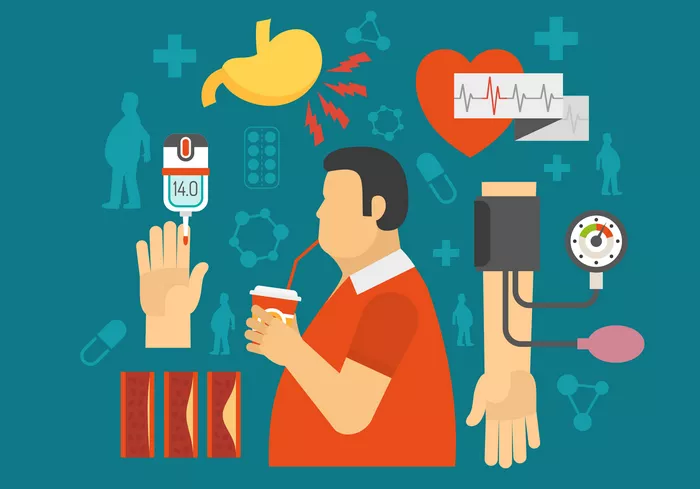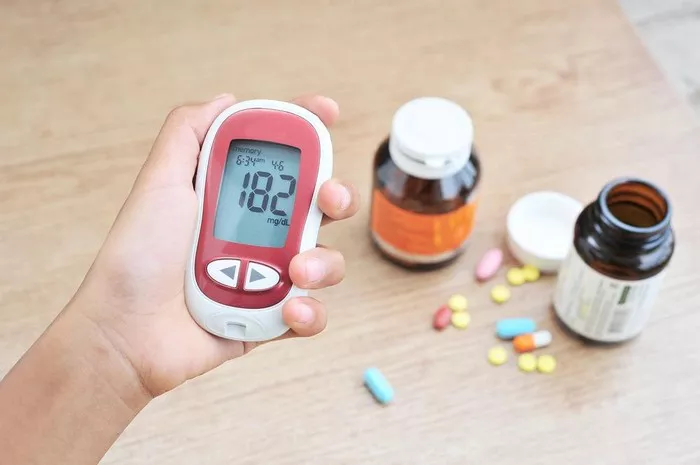Hypoglycemia, the condition marked by dangerously low blood sugar levels, poses a significant health risk for individuals with diabetes. While the causes of hypoglycemia are multifaceted, alcohol consumption has emerged as a notable factor contributing to this metabolic imbalance. Despite its widespread consumption and social acceptance, alcohol’s impact on blood glucose regulation is complex and can have profound effects on individuals with diabetes. In this article, we delve into the physiological mechanisms underlying alcohol-induced hypoglycemia, its clinical implications, and strategies for mitigating risks in diabetic patients.
Understanding Alcohol Metabolism and Glucose Regulation
Before delving into the specifics of alcohol-induced hypoglycemia, it’s crucial to grasp the basics of alcohol metabolism and its interaction with glucose regulation. When alcohol is ingested, it undergoes hepatic metabolism primarily through the actions of alcohol dehydrogenase (ADH) and aldehyde dehydrogenase (ALDH) enzymes. This process yields acetaldehyde, which is further metabolized into acetate and ultimately enters the citric acid cycle as acetyl-CoA.
Notably, alcohol metabolism takes precedence over other metabolic processes, including gluconeogenesis, the body’s mechanism for producing glucose from non-carbohydrate sources. Consequently, the liver’s capacity to release glucose into the bloodstream is diminished during alcohol metabolism, leading to a transient decrease in blood sugar levels.
Furthermore, alcohol consumption can impair the counterregulatory response to hypoglycemia, the body’s natural defense mechanism against low blood glucose. Normally, when blood sugar levels drop, hormones such as glucagon, epinephrine (adrenaline), cortisol, and growth hormone are released to stimulate glycogenolysis (breakdown of glycogen into glucose) and gluconeogenesis, thereby raising blood glucose levels. However, alcohol’s inhibitory effect on these hormonal responses can exacerbate hypoglycemia and increase the risk of adverse outcomes.
Factors Influencing Alcohol-Induced Hypoglycemia
Several factors contribute to the variability and unpredictability of alcohol-induced hypoglycemia, making it a complex phenomenon to manage in individuals with diabetes:
- Type and Quantity of Alcohol: Different types of alcoholic beverages contain varying amounts of ethanol, which can influence the magnitude of the hypoglycemic effect. Beverages with higher alcohol content, such as spirits, are more likely to cause hypoglycemia compared to beer or wine. Additionally, the quantity of alcohol consumed plays a crucial role, with larger doses posing a greater risk of hypoglycemia.
- Nutritional Status: Alcohol metabolism can interfere with nutrient absorption and utilization, particularly in individuals with poor nutritional status. Chronic alcohol consumption may lead to deficiencies in essential vitamins and minerals, such as thiamine (vitamin B1), which are vital for glucose metabolism and insulin sensitivity. These nutritional deficiencies can exacerbate the risk of hypoglycemia in diabetic patients.
- Concomitant Medications: Many medications commonly used by individuals with diabetes, such as insulin and sulfonylureas, can potentiate the hypoglycemic effects of alcohol. Insulin and sulfonylureas stimulate insulin secretion or enhance insulin sensitivity, increasing the risk of hypoglycemia when combined with alcohol. Moreover, certain medications may interact with alcohol metabolism pathways, further exacerbating glucose dysregulation.
- Individual Variability: The response to alcohol consumption varies widely among individuals and is influenced by factors such as genetic predisposition, liver function, and overall health status. Some individuals may experience pronounced hypoglycemic episodes even with moderate alcohol intake, while others may tolerate alcohol without significant glucose fluctuations.
Clinical Implications and Risks
Alcohol-induced hypoglycemia poses significant clinical challenges for healthcare providers managing patients with diabetes. The interplay between alcohol consumption, diabetes medications, and physiological responses to hypoglycemia necessitates careful monitoring and individualized management strategies. Failure to recognize and address alcohol-related hypoglycemia can result in severe complications, including:
- Seizures and Loss of Consciousness: Prolonged hypoglycemia can lead to neurological manifestations, such as seizures and loss of consciousness, which pose serious risks to patient safety and well-being.
- Cardiovascular Events: Hypoglycemia is associated with an increased risk of cardiovascular events, including arrhythmias, myocardial infarction, and sudden cardiac death. Alcohol-induced hypoglycemia may exacerbate these risks, particularly in individuals with pre-existing cardiovascular disease.
- Impaired Cognitive Function: Acute hypoglycemic episodes can impair cognitive function, leading to confusion, disorientation, and poor decision-making. These cognitive impairments may compromise the individual’s ability to recognize and treat hypoglycemia promptly.
- Delayed Recovery: Alcohol-induced hypoglycemia may prolong the recovery time from hypoglycemic episodes, as alcohol metabolism competes with glucose production and utilization pathways, delaying the restoration of euglycemia (normal blood glucose levels).
Strategies for Mitigating Risks
Given the inherent risks associated with alcohol consumption in individuals with diabetes, proactive measures should be taken to minimize the likelihood of hypoglycemia and its adverse consequences:
- Education and Counseling: Healthcare providers should educate patients with diabetes about the potential risks of alcohol-induced hypoglycemia and provide guidance on responsible drinking practices. This includes monitoring blood glucose levels before, during, and after alcohol consumption and recognizing the signs and symptoms of hypoglycemia.
- Medication Management: Patients taking insulin or sulfonylureas should be advised to adjust their medication doses in consultation with their healthcare provider to account for the hypoglycemic effects of alcohol. Temporary reductions in insulin dosage or avoidance of alcohol during periods of heightened hypoglycemic risk may be necessary.
- Nutritional Support: Encouraging patients to consume food along with alcohol can help mitigate the hypoglycemic effects by providing a source of glucose and slowing down alcohol absorption. Emphasizing the importance of balanced meals and snacks, particularly those rich in complex carbohydrates, can help stabilize blood sugar levels during and after alcohol consumption.
- Regular Monitoring: Regular monitoring of blood glucose levels is essential for detecting and managing alcohol-induced hypoglycemia promptly. Patients should be encouraged to check their blood sugar before consuming alcohol and at regular intervals thereafter to identify any deviations from target range.
- Emergency Preparedness: Patients should be equipped with glucagon kits or other emergency treatments for severe hypoglycemia and instructed on their proper use. Family members, friends, or caregivers should also be educated on how to respond to hypoglycemic emergencies and when to seek medical assistance.
Conclusion
Alcohol consumption can precipitate hypoglycemic episodes in individuals with diabetes through its effects on liver metabolism, hormonal regulation, and nutrient utilization. Understanding the mechanisms underlying alcohol-induced hypoglycemia is essential for healthcare providers to effectively counsel patients on risk mitigation strategies and optimize diabetes management. By promoting awareness, education, and proactive management, healthcare professionals can help individuals with diabetes navigate the complexities of alcohol consumption while minimizing the risks of hypoglycemia and its associated complications.
Related topics:

























